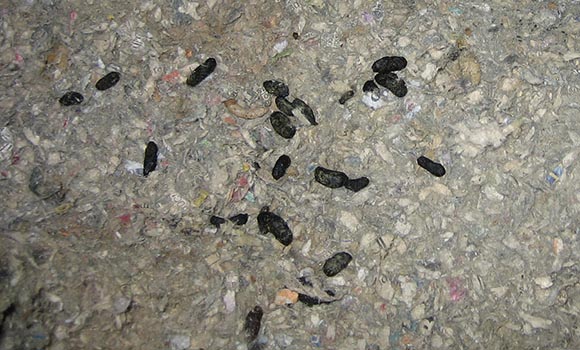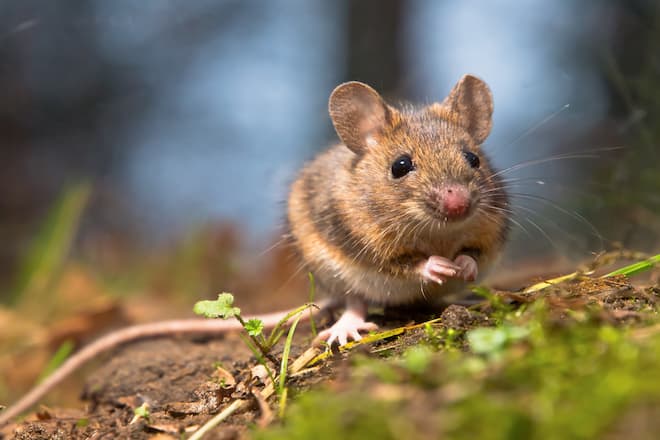Mice
Mice are a severely dangerous infestation that often starts with a single pregnant mouse finding your home in cold weather. They are looking for warmth primarily and need a safe place to give birth. Mice will often enter your home through a back door that has been left open but they can also enter through damaged foundation, weep vents, plumbing and electric vents and wall vents like dryer vents. Once they get inside of your home they will never leave. They will stay and continue to reproduce until they overwhelm you and fill the house with hundreds of mice. Trying to kill them with domestic tools like snap traps and capture traps is redundant as the population growth of mice is rapid and exponential. They can go from one to a hundred in the span of a few months and as the population grows the rate of reproduction increases with it.
Mice danger
Mice bring dangerous bacteria into your home. They have feces matted to their fur because they defecate in their nests and on the food they eat. They can spread bacteria like streptococcus and hantavirus and also carry parasites like fleas and ticks that can infect you and your family and pets with dangerous blood-borne diseases like Lyme disease. Add to this the feces-coated dander that floats around your home and can be easily inhaled the danger of a mouse infestation is severe.

Mice feces
Once you have gotten rid of the mice in your home there will be a lot of cleaning to do. Mouse feces if cleaned incorrectly can cause you to become very ill with a dangerous respiratory virus called Hantavirus. This is why you must never sweep up mouse feces. You can vacuum it but be very careful when emptying the bag out. Do it outside directly into a garbage container and wear a face mask while cleaning and disposing of it. This will keep you safe but it is still very dangerous. The best thing you can do is to wear as much PPE as you can to do the cleaning and use bleach and water to sterilize the areas.
Professional disinfection
If you are worried then you should call a professional pest control technician to clean it. They can use far safer tools like a shop vacuum with a heap filter that makes the cleaning very safe. They have hospital-grade sterilizers they can use to sterilize areas as well as industrial-grade foggers that can fog behind walls and fill spaces with sterilizers. This is much more effective when dealing with a serious infestation that could have left feces in the walls and insulation. They can also remove drywall and clear out infected insulation and clean the areas thoroughly. This kind of work is not safe for you to do even if you have a face mask and visor on. Licensed pest control technicians have full-face covering respirators that will protect them from the dangers of Hantavirus.

